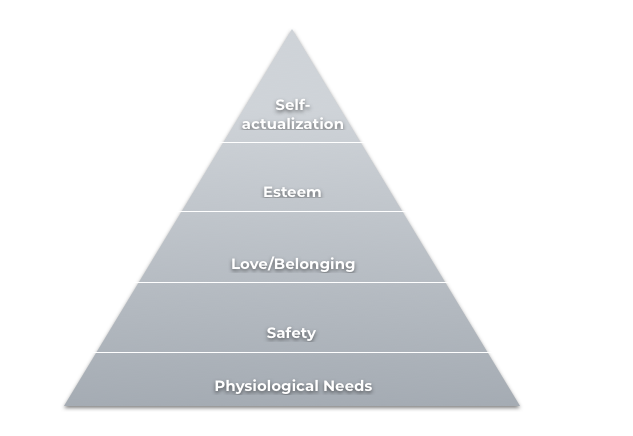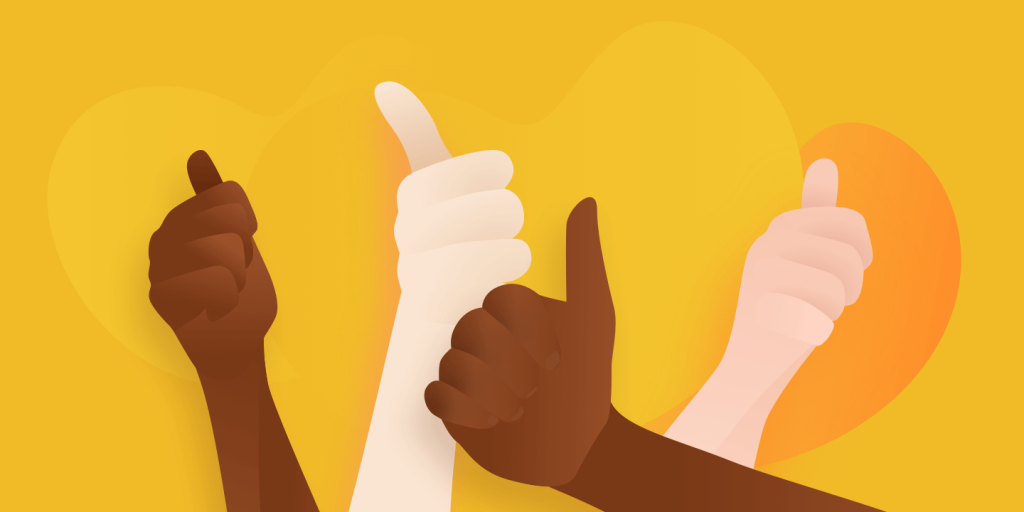You can’t talk about psychology without touching on emotions. But with the psychology of customer service, you’re bound to see a range of them.
What do psychology and customer service have in common? People. People with complex emotions and even more complex minds.
Not everyone behaves the same of course, but there is a lot of crossover in how people react to certain situations. Consumer behavior is the key to understanding what your customers want from you and how to best serve them.
If you’re able to understand the emotions and needs of your customers, you’re more apt to deliver amazing customer experiences. Let’s dive right in to a little psychology 101 so you can use the power of psychological behavior to wow customers and exceed expectations.

The hierarchy of needs
Abraham Maslow’s hierarchy of needs theory is the perfect example for showing how much people value being valued. Maslow’s theory says that after our basic physiological and safety needs our met, we seek love/belonging, esteem and self actualization.
 This hierarchy of needs can be applied directly to psychology of customer service as well. In terms of physiological needs, a customer might be stressed or angered when complications arise, a system is down or deadlines aren’t being met. The second level of the pyramid, points to safety. For example, a customer may be worried delays or issues could lose them money or cause delay in their own business.
This hierarchy of needs can be applied directly to psychology of customer service as well. In terms of physiological needs, a customer might be stressed or angered when complications arise, a system is down or deadlines aren’t being met. The second level of the pyramid, points to safety. For example, a customer may be worried delays or issues could lose them money or cause delay in their own business.
These situations may be more complicated to remedy. But it’s useful to know where a customer is coming from so that you can help them succeed.
Top of the pyramid
At the top of the pyramid, you’ll find needs that are less about survival and more about the ego and self. Whether we realize it or not, we all desire to be accepted and valued by others (esteem). A great way to show your customers you value to them is to show that you see and hear them. Give them your undivided attention and an earnest attempt to solve their concerns. Even a simple compliment can go a long way.
When people see that you care about them as a customer and aren’t just viewing them as a number, they’re more likely to feel valued. They’re also more likely to come back to use your product or service repeatedly. After all, 78% of customers have decided against an intended transaction because of a poor experience. So why not try and give customers your best effort in showing you care.
Emotions rule all
As humans, emotions rule much of how we make decisions. Even the most logical person uses emotion to make decisions. A study by neuroscientist Antonio Damasio showed that people who suffered brain damage to the parts of the brain that rules emotions were unable to make even the simplest decisions. Their logic was still intact, but when asked to choose between two things and make a decision, it was almost impossible.
What this means for the psychology of customer service is, the more positive emotions involved, the more likely your customers are to make their decisions from a positive place. Such as recommending your brand to friends and making more purchases.
As noted by, Bruce Temkin, Customer Experience Transformist, “Positive emotions increase human capacity. People are more thoughtful, creative, and adaptive when they experience positive emotions, and it also improves their physiological health and well-being.”
The Halo Effect
The Halo Effect is a cognitive bias that affects our feelings and thoughts towards something or someone. It creates either a positive or negative “halo” based on our first impressions or judgements. There’s a reason why they say first impressions make a difference.
What does that mean in terms of customer service? Creating a positive first impression during an initial interaction is crucial. It’s because unfortunately, negative impressions create a much stronger, longer lasting impression. (No pressure.)
When customers have great experiences with your brand, it helps cast a heavenly halo glow around your products and services in their eyes. This halo forms brand loyalty and leads people to believe that if you’re great in one area of business you’ll no doubt be great in all other areas.
A great example of this is Apple’s cult-like following. No matter what product they put out next there’s no doubt that people will be lining up to buy it.
Reciprocity for customer loyalty
In Professor Robert Cialdini’s book, Influence: The Psychology of Persuasion he says:
“The impressive aspect of reciprocation with its accompanying sense of obligation is its pervasiveness in human culture.”
In plain speak, this means we’re hardwired to give back when we’re given too. We want to return the favor.
There are two types of reciprocity, trumpeted and and surprise. Trumpeted is when the other person knows they’ll be receiving something and surprise reciprocity is exactly that, a surprise.
There’s a classic study that showed when restaurant waiters gave free candies to their customers at the end of their meal their tips increased. Amazingly enough, those who came back with an extra round of sweets on the house got even bigger tips.
Get creative in giving back to your community. Can you offer free shipping and returns, personalized one-on-one assistance, a follow up to see how things turned out after a negative experience? As always, it’s the little things that count and ultimately make people feel valued. You’ll be surprised at how people return the favor.
Humans are complex
As mentioned in the beginning of this article, us humans are complicated creatures. Having a foundation of knowledge on how people behave and how to interact in order to create positive experiences is not only necessary in business but in life in general. You don’t have to be a psychologist to understand people but you do have to attempt to understand on a deeper level if you want to truly make an impact on them.














